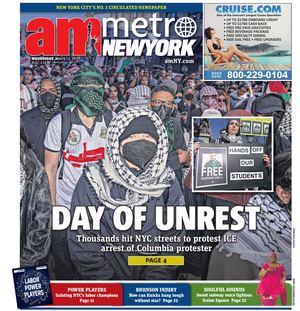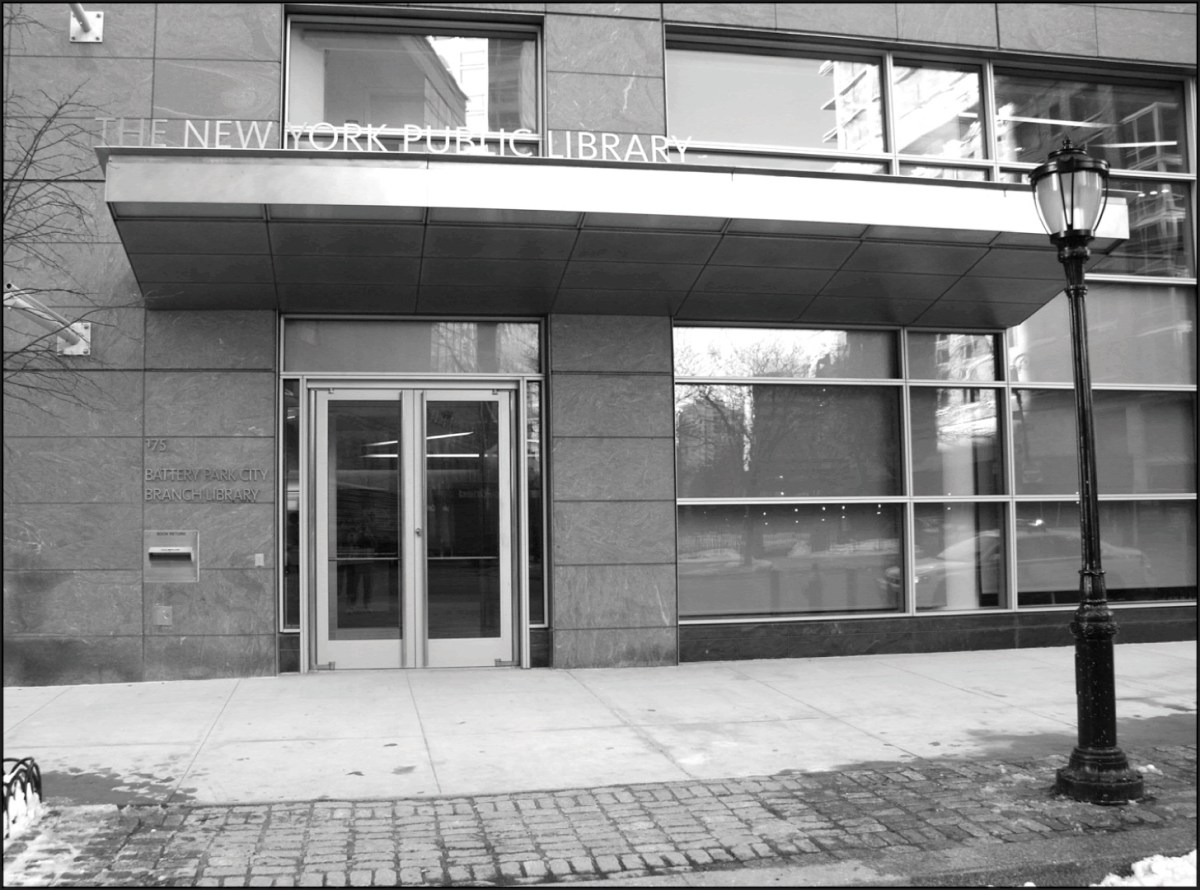BY Ailene Reynolds
The New York Public Library is bracing for the deepest budget cut in its 115-year history. And if it goes through, students in English for Speakers of Other Languages courses throughout Lower Manhattan might have to look elsewhere for instruction.
N.Y.P.L.’s three Downtown Manhattan branches—Seward Park, Chatham Square and Hamilton Fish Park Libraries—might no longer be able to continue their E.S.O.L. programs with a reduced budget for the 2011 fiscal year.
“We particularly cannot afford such deep cuts now,” said District 1 Council Member Margaret Chin. New Yorkers continue to struggle through this recession, and they have increasingly turned to libraries for the free services they provide.”
Chin has received more calls about the libraries than about any other budgetary concern.
N.Y.P.L. offers some of the only free programs in the city for intermediate-level E.S.O.L. students.
“There just aren’t other comparable alternatives in the City,” said Angela Montefinise, N.Y.P.L. Public Relations Manager. “If our seats are cut, we’re in big trouble.”
Seward Park Library’s medical literacy program trains intermediate-level students ages 16 years and above about how to communicate with their doctors about their health. N.Y.P.L. invites resident-physicians from Gouverneur Healthcare Services (in the Lower East Side) to make presentations at the N.Y.P.L. classes about diabetes, osteoporosis and other medical conditions. The students learn how to talk to their physicians about disease management and preventative care. They’re also taught how to fill out medical forms.
“It [the program] is very much geared towards the needs of the students,” who are mostly Asian and Hispanic and have lived in the U.S. for less than a year, said Lianne Smith, a teacher hired by N.Y.P.L.
When the doctors aren’t available to guest-appear at the classes, Smith teaches her students the lingo of anti-smoking and healthy eating.
The classes prepare students for real-life situations, which sets them apart from those offered by other E.S.O.L. programs. “It really helps them with their confidence level — they know it’s a practice situation, but it feels real,” said Smith.
Chatham Square’s pilot adult education program, “We Are New York,” jointly created by the Mayor’s Office and CUNY, is also threatened. The course is aimed at intermediate and advanced students who wish to overcome the language barrier in their everyday lives. Students watch TV programs about health, baking and money management to gain proficiency in English.
“They learn how to speak to their child’s teacher or apply for a job,” said Susan Gitman, Immigrant and Outreach services Coordinator of N.Y.P.L. Though “We Are New York” is run exclusively by volunteers, Kennedy explained that purchasing materials, registration and marketing of the program can get costly.
“We need the funding to keep these programs running,” she said.
Hamilton Fish Park library offers two E.S.O.L. classes for beginner students. “People who don’t speak one word of English leave with basic conversation skills,” said Montefinise.
All of N.Y.P.L.’s E.S.O.L. courses are now offered twice a week for a 10-week period in the fall, winter and spring.
Most English language programs are too time-consuming for the average student who is trying to maintain a job or a family, Smith said. “If you’re working 50 hours a week, it’s going to be really difficult to take a 15-to-20-hour-a-week class,” she said. Language classes at schools elsewhere in the city, such as the Manhattan School of Music and Riverside Language Program, typically run during the day and often conflict with students’ job schedules.
“In some cases, the class is basically a full-time job,” Smith said.
If the budget cuts are implemented, ten of the city’s libraries would be shuttered, and the rest would have to curtail their hours to an average of four full days per week. These scheduling changes would likely affect all three Lower Manhattan branches. In N.Y.P.L.’s Lower Manhattan network, which it designates as 58th Street and below, there would be 1.1 million fewer visits to the area branches and 1.3 million fewer-circulated items if N.Y.P.L. falls $37 million short of its annual budget.
Funding allocated to N.Y.P.L.’s E.S.O.L. program would be cut in half from $500,000 to $250,000. In the 2010 fiscal year, N.Y.P.L. held 117 E.S.O.L. classes at 20 of its branches, serving 3,000 students. If the proposed cuts happen, it could only conduct 69 classes at 11 of its sites for 1,275 students. N.Y.P.L. had no further regional breakdown of these numbers.
In attempt to convince the City to restore funding, N.Y.P.L. has created an advocacy website, dontclosethebook.NYPL.org, and has compiled nearly 122,000 letters from patrons pleading with the City Council to restore the cuts.
Last week, 2nd and 3rd graders from Chinatown’s P.S.1 gathered in front of City Hall to protest the proposed cutbacks. Letters of complaint that the children scribbled on sheets of paper were sent to the Mayor and to City Council. Councilmembers Jimmy Van Bramer and Vincent Gentile were present to show their concern and speak to the importance of the libraries.
Sum Lin, a first-grader at P.S. 2, wrote: “Dear Mayor Bloomberg, please don’t close the libraries because books help children learn stuff. If you close the libraries, the children won’t know anything.”
“The proposed cut of $36.8 million is even worse than the cuts to the library in the 1970s, when New York was on the brink of bankruptcy,” said N.Y.P.L. President Paul LeClerc in a May 6 press release.
The financial cutback is one of several that Mayor Michael Bloomberg has set forth in early May when determining his executive budget for the upcoming fiscal year.
City Council is granted an annual sum to restore funding for core services such as N.Y.P.L. The Council will notify the public of its funding decisions early next week, once the budget is adopted.
Meanwhile, the N.Y.P.L. has their fingers crossed.

































